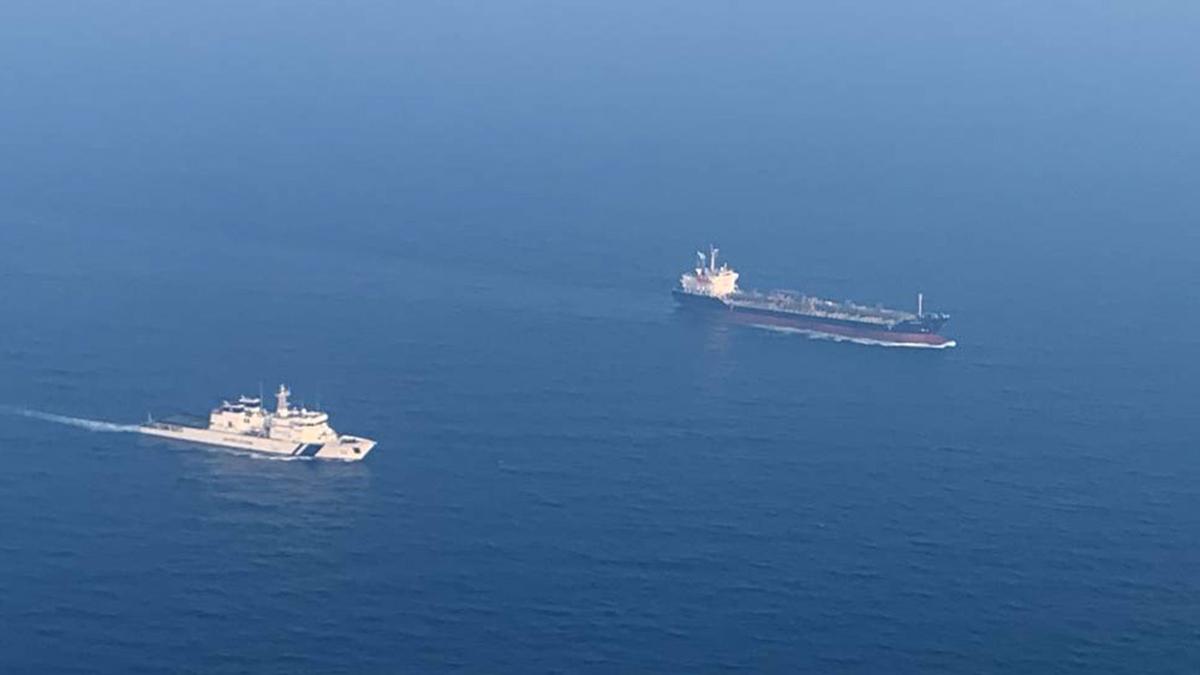
Houthi attacks: a threat to global shipping?
The Hindu
Red Sea crisis escalates with missile & drone attacks on commercial shipping; India deploys Navy & Coast Guard to counter threats & protect free flow of commerce.
On December 23, the crisis in the Red Sea reached Indian waters as Liberian-flagged merchant vessel Chem Pluto heading to Mangalore port was hit by a projectile about 271 miles from Porbandar in Gujarat, just outside the Indian Exclusive Economic Zone (EEZ). This comes in the backdrop of a sharp rise in missile and drone attacks on commercial shipping in the Red Sea by Houthi rebels in Yemen in the last couple of weeks following Israel’s offensive against Hamas in Gaza.
The vessel with 21 Indians and one Vietnamese crew managed to sail on its power after the attack and reached Mumbai on Monday escorted by the Indian Coast Guard Ship (INGS) Vikram. Upon arrival, a Navy Explosive Ordnance Disposal team carried out a preliminary assessment of Chem Pluto and analysis of the area of attack and debris found on the ship points towards a drone attack, the Navy said. “However, further forensic and technical analysis will be required to establish the vector of attack, including type and amount of explosive used,” it stated. A joint investigation by various agencies is also underway.
In another instance, on December 23, Gabon-flagged, Indian crewed vessel m. v. Sai Baba reported a drone attack in the Southern Red Sea and is now on its way to India. The twin attacks last weekend, on m.v. Sai Baba and Norwegian-flagged m. v. BLAAMANEN, represent the 14th and 15th attacks on commercial shipping by Houthi militants since October 17, according to the U.S. Central Command. More attacks have been reported since.
Threats to shipping in the Gulf of Aden and the region are not new as seen with episodes of Somalian pirates and the global anti-piracy efforts by several countries. However, the recent events represent a serious escalation that can potentially disrupt supply chains and impact economics. The Red Sea is a key shipping artery for global commerce and the Bab el-Mandeb is a critical choke point.
Following the October 7 terror attacks on Israel by Hamas and the subsequent offensive by Israeli Defence Forces, the Houthi rebels in Yemen have declared they would target all maritime commerce linked to Israel. What is especially worrying is their sophisticated arsenal of ballistic missiles and long range drones that are threatening maritime traffic far from the shores. The U.S. Navy has been shooting down missiles and drones in the region almost daily.
“About 12% of global trade passes through the Red Sea, which accounts for billions of dollars of goods and about 30% of the world’s container shipping. Access to the Red Sea requires passage through the Bab el-Mandeb — a narrow strait about 20 miles wide with Djibouti to the west and Yemen to the east,” Susan Stigant, Director of Africa Programs with the U.S. Institute of Peace wrote in a commentary.
Following the attacks, several global shipping majors have announced their decision to avoid the route and take a longer route through the Southern Indian Ocean adding to both fuel and operating costs in addition to the time. For instance, shipping industry giant Maersk had begun re-routing vessels around Africa via the Cape of Good Hope.











